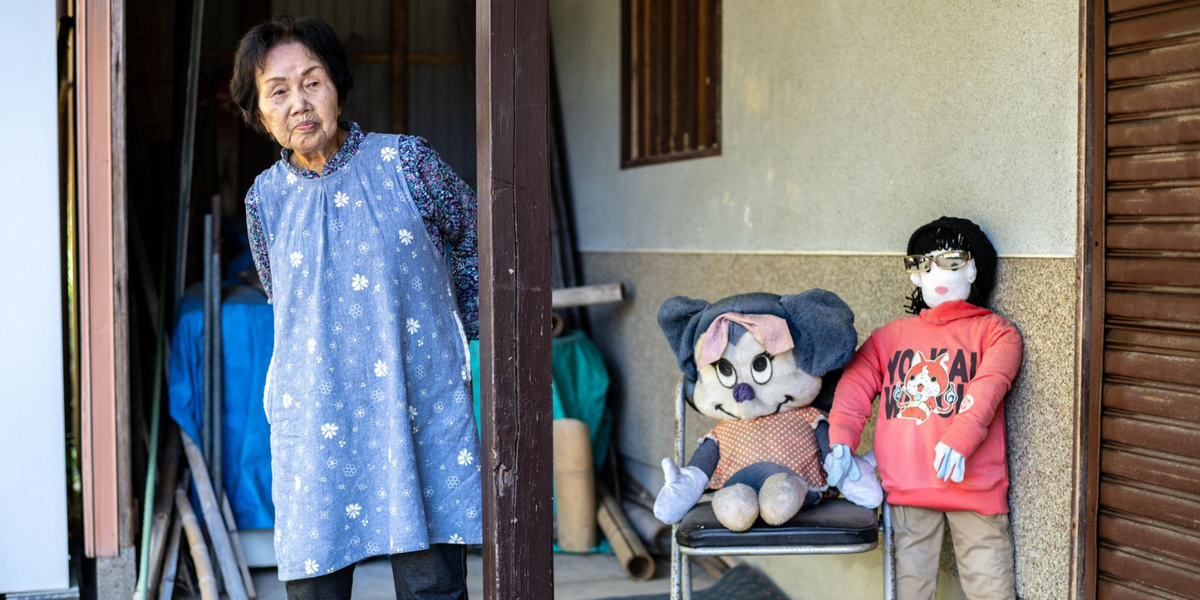Puppets Outnumber People: The Unusual Solution to Loneliness in Ichinono, Japan
In the remote village of Ichinono, nestled in southern Japan, a peculiar phenomenon has emerged: puppets now outnumber real residents. With a population dwindling to fewer than 60, most of whom are past retirement age, the village has become a poignant symbol of Japan’s broader demographic crisis. As younger generations migrate to urban centers in search of jobs and education, the elderly inhabitants of Ichinono have turned to an unconventional remedy to combat their loneliness—crafting life-sized puppets.
A Village in Decline
Ichinono’s situation is not unique; it reflects a national trend in Japan, where the population has been declining for 15 consecutive years. Recent statistics reveal that 29.3% of the population is aged 65 and over, the highest percentage globally. The village’s elderly residents, like 88-year-old Hisayo Yamazaki, lament the departure of their youth. "We’re probably outnumbered by puppets," she remarked, highlighting the stark reality of their situation.
The exodus of younger people has left the village eerily quiet. Once vibrant with families, Ichinono now features scenes of puppet children and families playing on grass verges and front porches, creating an illusion of life where there is little. The puppets, made from old clothes, fabrics, and mannequins, have become a lifeline for the remaining residents, offering companionship and a semblance of community.
The Art of Puppetry
The creativity displayed by Ichinono’s residents is both heartwarming and haunting. The puppets are strategically placed throughout the village to evoke a sense of normalcy. Some can be seen on swings, others pushing carts, and a few even riding bicycles. In the fields, life-size mannequins dressed in farming clothes stand ready to work, a testament to the village’s agricultural roots.
These figures serve more than just a decorative purpose; they fulfill a therapeutic role for the elderly. Studies have shown that puppets can alleviate symptoms of loneliness and depression in older adults. Drama therapist Dannielle Jackson explains, "It’s not childish, or child’s play. Puppets allow you to project in a way that is safe." For the residents of Ichinono, these creations provide a sense of connection and purpose in an increasingly isolating environment.
The Price of Progress
The departure of Ichinono’s youth has not come without consequences. Yamazaki reflects on the societal pressures that encouraged young people to leave, fearing they would become "unmarriageable" if they remained in a remote village. Ichiro Sawayama, the head of the village’s governing body, warns, "If the village is left as it is now, the only thing that awaits us is extinction." This stark reality underscores the urgent need for solutions to reverse the trend of depopulation.
A Glimmer of Hope
Despite the challenges, there is a flicker of hope for Ichinono. Rie Kato, 33, and her husband Toshiki Kato, 31, moved to the village from Osaka during the COVID-19 pandemic. Their son, Kuranosuke, now two years old, is the first baby born in Ichinono in two decades. His father expresses the joy of their decision: "Just by being born here, our son benefits from the love, support, and hope of so many people—even though he has achieved absolutely nothing in life yet."
The arrival of a new generation could signal a turning point for Ichinono, offering the potential for revitalization and renewed community spirit. The Katos’ story serves as a reminder that even in the face of demographic decline, hope and resilience can flourish.
Conclusion
Ichinono stands as a poignant example of the challenges faced by rural communities in Japan and beyond. The villagers’ innovative use of puppets to combat loneliness highlights the human spirit’s capacity for creativity and adaptation. While the puppets may not replace the warmth of human interaction, they serve as a reminder of the importance of community and connection in an increasingly fragmented world. As Ichinono navigates its uncertain future, the village’s story invites reflection on the value of companionship, the impact of demographic shifts, and the enduring hope for renewal.
